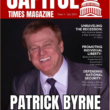UPDATE: as explained here, shortly after the following post was published, all of the reviews of each of the five “reviewers” examined were deleted by the reviewer himself, whom we posit to be Gary Weiss. Consequently, the links to the original reviews included in this post lead to blank pages. Still, we leave the post in its original state for your consideration.
| You were probably expecting this installment of Antisocialmedia.net to be entirely about Gary Weiss. Sorry, it’s not. At least not exclusively.Instead, this is a story about ten authors and five Amazon.com reviewers, and how Gary Weiss unites them all.
We’ll start with writer Daniel Strachman. |
| Daniel Strachman |
| Strachman is a business writer, whose list of published books includes Getting Started in Hedge Funds and the biography of former hedge fund owner Julian Robertson, A Tiger in the Land of Bulls and Bears. Strachman’s books are sold in many online venues, including Amazon.com, which is notable for its reader-contributed book reviews. An examination of the reviews of Strachman’s Getting Started in Hedge Funds reveals an unusual degree of polarization and negativity, especially for a title of the non-fiction, “high level overview” genre.The most recent (11/2006) review of the book was submitted in April, 2005 by someone who merely self-identifies as George (Needham, MA).
Here’s what George wrote about Getting Started in Hedge Funds: Additional Information
In 1996, Julian Robertson filed a $1-billion libel lawsuit against Gary Weiss and his then-employer Business Week Magazine. Robertson insisted, and Business Week later admitted, a story about Robertson, penned by Weiss, contained some overt inaccuracies. In A Tiger in the Land of Bulls and Bears, Strachman offers Robertson’s view of his clash with Weiss, and BusinessWeek, and quotes Weiss as saying:
In the interim, Gary Weiss has used the web to take shots at Robertson more than once. The successful efforts to delete the Wikipedia articles on a Robertson-funded scholarship and another on Robertson’s wife Josie were both instigated by Lastexit, one of Gary’s confirmed Wikipedia sockpuppet accounts, and (in direct violation of Wikipedia rules) supported by Mantanmoreland, another Weiss sockpuppet.
It’s not immediately clear why someone would give the author of a “horrid biography” a second chance, but we’ll assume George has his reasons. To better understand what those reasons are, we could read George’s review of the Robertson book. Unfortunately, despite having read it, George opted not to review the Robertson biography, although we do find another review, submitted by Rich Golden (New York, NY), that comes unusually close to what we imagine George might write.
Note how both George and Rich Golden employ the term “horrid,” and both single out the publisher Wiley & Sons for criticism — keeping in mind that most readers are rarely even aware of a book’s publisher, much less prone to assign blame or credit for a book they’ve read. Another notable exception to that rule is reviewer Jim O’Reilly (New York, NY), who hated the Robertson bio and also blames the book’s publisher.
Apart from their shared dislike for the work of Daniel Strachman and disappointment in the editorial judgment of Wiley & Sons, what else do George, Rich Golden and Jim O’Reilly have in common? To learn, let’s look at their reviews of other authors. |
| Frankie Saggio |
| On April 9, 2005, one day before his thrashing of Strachman, George reviewed Frankie Saggio’s autobiographical Born to the Mob.Pathetic. You got to hand it to this Saggio guy–the scams never end. Now comes his latest scam, which is this book, which he obviously just made up completely. Anyone could have written this book using stuff that appeared in the media…Pretty miserable and pathetic stuff. (George)
Interestingly, we find that Jim O’Reilly also read and reviewed Born to the Mob.
Two weeks after Jim O’Reilly weighs in, reviewer Marty Ross (Houston, TX) expresses his disappointment with Saggio’s effort.
To learn more about Marty Ross, let’s read his reviews of other authors. |
| Salvatore Lauria |
In November, 2003, Marty Ross reviewed The Scorpion and the Frog by Salvatore Lauria, and offers a very telling bit of insight when he strikes a comparison between that book and another true crime tale released that same year.
Additional information
Weiss (as Mantanmoreland) also complained about Lauria’s having changed some names in an edit to the Wikipedia article Pump and Dump:
Mr. Ross’s criticism of Lauria is echoed by reviewer Ted Dichtler (Monroe, NY).
To learn more about Ted Dichtler, let’s read his reviews of other authors. |
| Selwyn Raab |
| Ted Dichtler was disappointed by Selwyn Raab’s Five Families: The Rise, Decline, And Resurgence of America’s Most Powerful Mafia Empires.
Additional Information
Selwyn Raab covered the organized crime beat for the New York Times and wrote a high profile expose on the Mob’s infiltration of Wall Street which ran in the middle of BusinessWeek’s three-month long series on the same topic, written by Gary Weiss.
Mr. Dichtler’s review, posted September 11, 2005, came just one day after a review of the same book by Rich Golden.
Two weeks later, on September 28, 2005, Jim O’Reilly reviews the same book.
George, Rich Golden, Jim O’Reilly, and Ted Dichtler all seem to have a lot in common. At the very least, we see that they hate the work of the same writers. Can the trend continue? Let’s find out by looking at another author. |
| Michael Mandel |
| Ted Dichtler read Michael Mandel’s Rational Exuberance, but couldn’t find anything positive to say in his original review posted August 24, 2004.
Additional Information
Strangely, this review was substantially edited on or about November 15, shortly after it was revealed that the origins of Gary Weiss’s Amazon.com reviews would be a forthcoming topic on this blog. The edited version gives five enthusiastic stars, where Ted Dichtler’s original (cached version available here) gave one.
Coincidentally, Ted Dichtler’s review was posted just a few weeks after our friend George thrashed the same book. Additional Information
Michael Mandel and Gary Weiss were colleagues at Business Week until Weiss left the magazine in mid-2004. Mandel remains at BW as Head Economist.
Despite his almost visceral aversion to Mandel’s Rational Exuberance, ten months later George opted to read yet another book by the author, The Coming Internet Depression.
So far, among reviewers Rich Golden, George, Ted Dichtler, Jim O’Reilly, and Marty Ross, we’ve seen instances of cross-over among everybody but Marty and Rich. Until now… |
| Rebecca Smith |
Among the first to review Rebecca Smith’s 24 Days: How Two Wall Street Journal Reporters Uncovered the Lies that Destroyed Faith in Corporate America were Marty Ross and Ted Dichtler. In fact, they wrote their reviews within four days of each other, starting with Ted.
Like Ted Dichtler, reviewer Marty Ross also warns readers against falling for the publisher’s “hype,” in addition to offering the book Power Failure as an alternative, and concludes by attacking the quality of the book’s writing. Additional Information
Gary Weiss is an active consumer of Enron-related material, and wrote a column on the topic for Salon.com.
|
| Arthur Levitt |
| After leaving the Chairmanship of the SEC, Arthur Levitt started writing books, including Take On the Street: What Wall Street and Corporate America Don’t Want You to Know.
Additional Information
Upon conclusion of his month long Wikipedia absence, one of Gary Weiss’s first edits was the following, made to the Wikipedia article on former SEC Chair Arthur Levitt, where he noted:
Marty Ross spent part of his Christmas Eve, 2003 offering up this review of Levitt’s book:
*Though dated 12/24/2003, this review makes reference to Gary Weiss’s second book, which was not published until 4/6/2006. Just though it was worth mentioning. |
| Charles Gasparino |
|
Additional Information
Charles Gasparino has been the subject of attacks by Gary Weiss for Gasparino’s defense of SEC subpoenas issued to financial journalists and commentators, including CNBC’s Jim Cramer. Rich Golden reviewed CNBC Wall Street reporter Charles Gasparino’s Blood on the Street: The Sensational Inside Story of How Wall Street Analysts Duped a Generation of Investors but here again, had nothing positive to say about it.
|
| James J. Cramer |
| CNBC’s Mad Money host Jim Cramer also writes books. Ted Dichtler read Jim Cramer’s Real Money and it appears to have changed his life.
Additional Information
Gary Weiss seems to adore Jim Cramer and frequently defends him on his blog.
George read Cramer’s Confessions of a Street Addict and was touched.
|
| Gary Weiss |
| The combined passions of George, Ted Dichtler, Marty Ross and Rich Golden converge around Gary Weiss and his books Born to Steal and Wall Street Versus America.Ted Dichtler on Born to Steal:
Additional Information
This review is dated 5/4/2003, which is between 0 and 38 hours after the first possible opportunity to buy the book in stores (Warner Books only lists the publication date as “5/03″)..
Ted Dichtler on Wall Street Versus America:
Rich Golden on Born to Steal:
Rich Golden on Wall Street Versus America:
Marty Ross on Born to Steal:
Marty Ross on Wall Street Versus America:
George on Wall Street Versus America:
George on Born to Steal :
But what about Jim O’Reilly? Interestingly, Jim O’Reilly was the only one of the five who never reviewed Gary Weiss’s books. However he did the next best thing: he reviewed The Sanity Check Blog, run by Weiss’s avowed mortal enemy Bob O’Brien.
And with that, gentle reader, we rest our case. Antisocialmedia.net again calls on Gary Weiss to end his seemingly limitless online charades. (Ready to run up the score a little again? OK, how about this…) Additional Information
Blogger is the blogging platform Gary Weiss uses (exclusively). Jim O’Reilly also reviewed Blogger.com:
Jim O’Reilly also reviewed two DVD compilations of the Naked City television series. Additional Information
Confirmed Weiss sockpuppet Tomstoner is the single largest contributor to the Wikipedia article on the Naked City tv series.
Marty Ross thrashed Arthur Waskow’s A Time for Every Purpose Under Heaven: The Jewish Life-Spiral as a Spiritual Path with particular zest: Additional Information
Gary Weiss (Mantanmoreland), apparently felt no conflict of conscience when he brought an administrative complaint against an editor named Awaskow (presumably Arthur Waskow) for editing the Wikipedia article about him.
|



